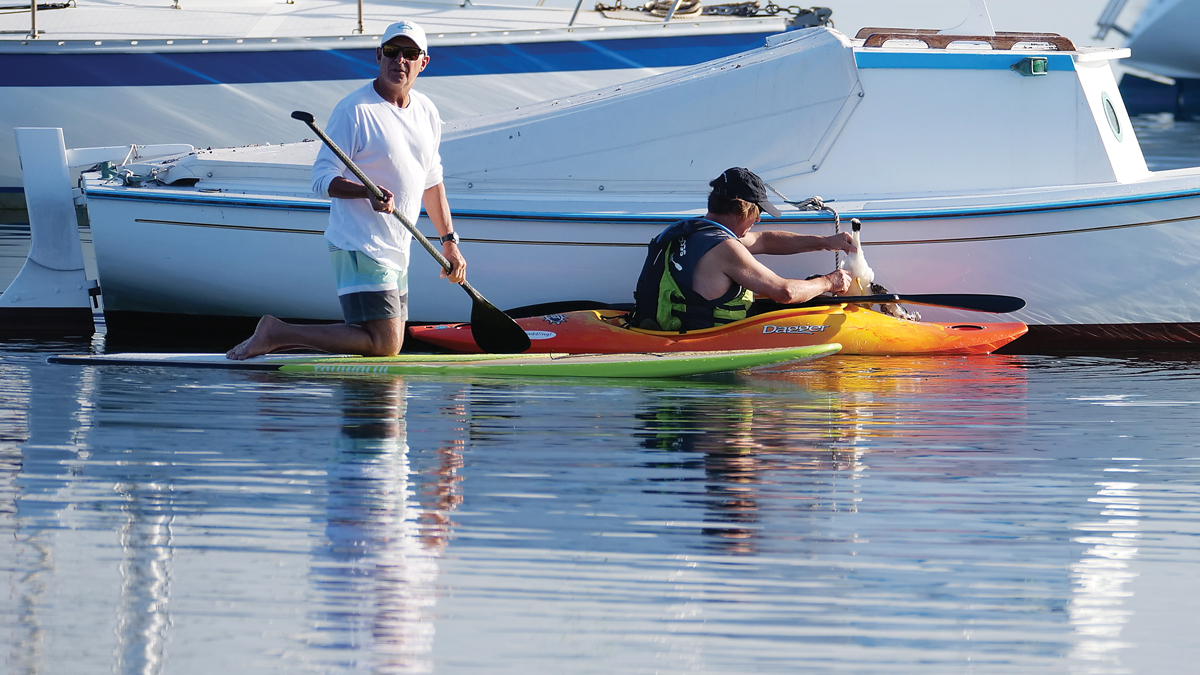THE repeated discarding of fishing line and tackle on the Mornington Peninsula continues to take a toll on seabirds and wildlife.
Dozens of emergency calls to wildlife rescue volunteers and animal welfare organisations this summer have highlighted the problem of people irresponsibly throwing away hooks and line, or just not monitoring their baited lines adequately.
Last Wednesday paddle boarder Steve Scagliarini and a kayaker known as “Mick” were on Mornington harbour when they saw a Pacific gull struggling to keep its head above water, and with fishing line wrapped around its legs.
After paddling out to the bird and keeping its head above water as they cut the line, a Wildlife Victoria volunteer took the bird to a vet, who confirmed it had a fishing hook lodged in its gullet close to its stomach.
The very underweight bird, which is protected under wildlife laws, was taken to Melbourne Zoo where it is being treated until ready for release.
Paul Churcher, of Mornington, photographed the rescue and said people should take much more care about what they leave lying around.
“I doubt there was any intention for harm to this animal, but it is always distressing to see them in trouble and pain,” he said.
Wildlife Victoria says entanglement of birds and wildlife in discarded fishing lines, plastic bags and rubbish is all-too-common, with hundreds of cases reported to the volunteer organisation each year.
Zoos Victoria also has an awareness and education program that aims to prevent abandoned fishing tackle harming the environment.
Long-term Victorian studies show that seals, particularly juveniles, are regularly injured or killed after becoming entangled in discarded fishing gear.
Zoos Victoria’s Seal the Loop bins – which are available to municipalities – help to keep aquatic wildlife safe by providing anglers with an easy way to responsibly dispose of unwanted fishing gear.
Mark Keenan from the marine response unit says there are many simple ways to keep seals and other wildlife safe when fishing, including removing fishing line from the water when wildlife is at risk of interacting with it, cleaning fish away from the water’s edge or at designated cleaning locations, disposing of scraps in a rubbish bin, and placing unwanted fishing gear in a bin.



